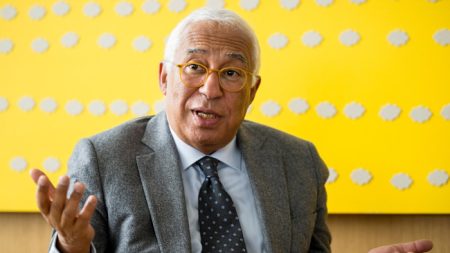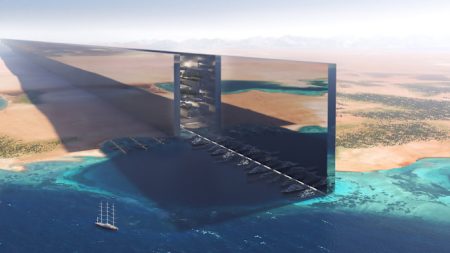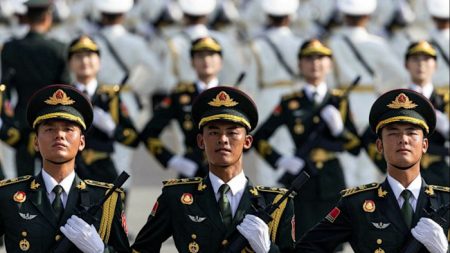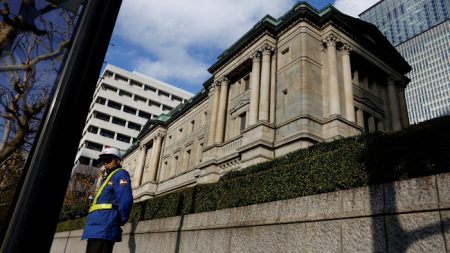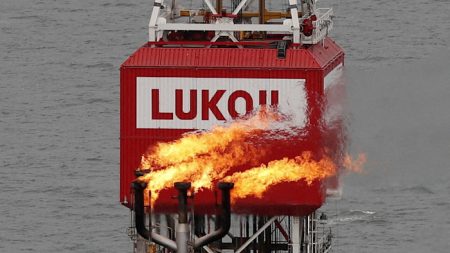The US and its European allies stepped up efforts to dissuade Israel from striking back against Iran on Monday, as Israel’s military chief vowed to respond to Tehran’s unprecedented attack on the country’s territory.
US secretary of state Antony Blinken and UK Prime Minister Rishi Sunak both said western countries were preparing sanctions on Tehran as they sought to prevent escalation into a full-blown Middle East war.
Blinken said Washington was “co-ordinating a diplomatic response to seek to prevent escalation” in the wake of Saturday night’s barrage of more than 300 Iranian missiles, rockets and drones on Israel.
Sunak said the G7 was working on further diplomatic measures against Iran, which is already heavily sanctioned by the west.
But after Israel’s five-man war cabinet met for a second day to discuss its response to Iran’s assault, Herzi Halevi, the chief of staff of the Israel Defense Forces, signalled that Israel would strike back.
“We are looking ahead and weighing our [next] steps, and this launch of so many missiles, cruise missiles, and UAVs into the territory of the State of Israel will be met with a response,” he said at Nevatim, an air base hit by Iran over the weekend.
Halevi added that “the IDF can handle Iran” and “act forcefully against Iran in places near and far”. But he also said “we are co-operating with the United States and with strategic partners in the region”.
The frantic diplomacy came after the US, the UK, France and Jordan assisted Israel in shooting down or disabling the vast majority of the projectiles.
In comments at the White House, US President Joe Biden emphasised Israel’s allies’ role in foiling the Iranian assault. “Together with our partners, we defeated that attack,” he said, adding that the US was committed to both Israel’s security and “prevent[ing] the conflict from spreading”.
An Israeli official said that the war cabinet had discussed a variety of military and diplomatic responses, adding that Israel reserved the right to respond. In an indication that Israel may be contemplating retaliating sooner rather than later, the official said any response would have more impact if it came “in close proximity” to the Iranian attack.
Iranian foreign minister Hossein Amirabdollahian told his UK counterpart Lord David Cameron in a phone call after the attacks that Tehran did “not welcome regional escalation”, the foreign ministry said on Monday.
But it said he also warned that “in case of any new Israeli adventurism, our response will be urgent, more powerful and larger in scale”.
French President Emmanuel Macron said the international community should do “everything we can to avoid flare-ups” and “try to convince Israel that we shouldn’t respond by escalating, but rather by isolating Iran”.
The US and the UK have both made clear that they will not participate in any retaliatory strike. Israel’s Arab neighbours fear conflict spilling over into their borders.
“We’re saying very strongly that we don’t support a retaliatory strike,” Cameron said on Monday.
Tehran launched the attack on Saturday in retaliation for an Israeli strike on its consulate in Damascus this month that killed several senior Iranian commanders.
An Iranian official told the Financial Times that Iran did not want the crisis to escalate and had forewarned the US about its intention to conduct a retaliatory attack against Israel, two days before the missile and drone barrage was launched.
Messages were sent to Washington through the Swiss embassy, which acts as the US representative in Tehran, and later through Turkey, the official said.
“The message said Iran needed to respond . . . but it would be calculated just to show the Israelis that, from now on, there will be a response to their actions, but Iran is not seeking escalation,” the official said.
International markets largely brushed off the news from the Middle East on Monday, with oil prices falling slightly.
Iran’s salvo was the first time it had attacked Israel directly from its own territory and brought the Middle East closer to a full-blown war between its two strongest military powers.
The region has been engulfed by hostilities since the conflict between Israel and Hamas erupted last year.
On Monday, four Israeli soldiers were injured in a blast after entering Lebanese territory. The Iran-backed Hizbollah militant group said it had planted explosive devices in the Tel Ismail area and detonated them when the soldiers approached.
Hardliners in Netanyahu’s coalition with ultrareligious and far-right groups have demanded a “crushing” response to the Iranian attack.
However, others have argued that the relatively limited impact of the strikes, which seriously injured a young girl and caused minor damage to two military bases, meant that Israel could afford to adopt a more measured response.
The Israeli military said on Sunday night it was calling up two brigades of reservists “for operational activities on the Gazan front”.
Israel has pledged to launch an operation in Rafah, which it regards as Hamas’s last stronghold in Gaza. But it has been under intense pressure from the US not to carry out an operation in the city without evacuating the more than 1mn Palestinians who are sheltering there after fleeing fighting elsewhere in the enclave.
Additional reporting by Bita Ghaffari in Tehran, Lucy Fisher in London and Max Seddon in Riga
Read the full article here






